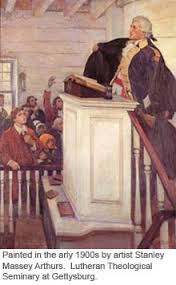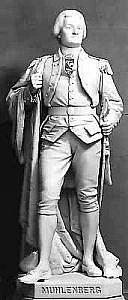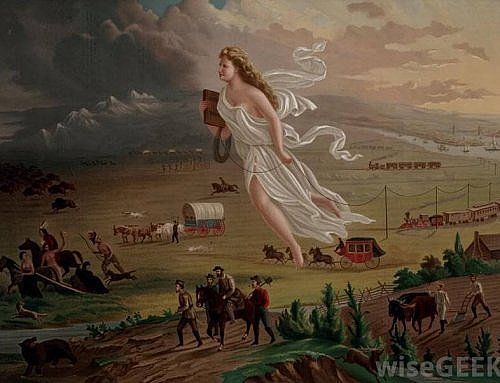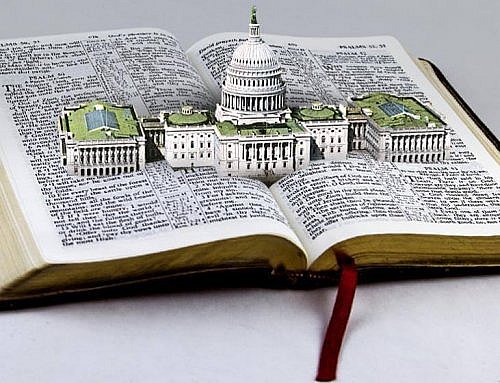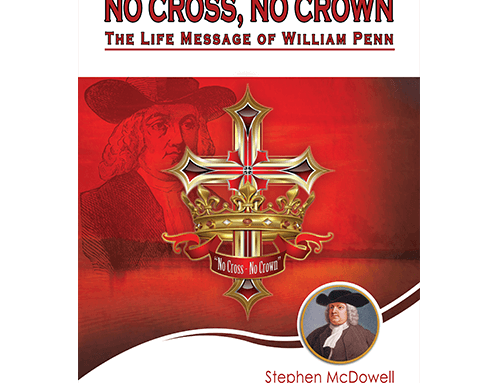“The Black Regiment”
by Stephen McDowell
So many ministers participated in the War for Independence that they were called “the Black Regiment,” in reference to their pulpit gowns, by the opposition. One member of the “Black Regiment,” Peter Muhlenberg, is honored by a statue in the United States Capitol Building. Benson J. Lossing writes of his beginning involvement:
In those days politics were preached in the pulpits and men were led to action on the side of freedom by faithful pastors. The eminent General Muhlenberg was one of this stamp. When the war for independence was kindling, he was a clergymen in Virginia, and at the close of 1775, he concluded a sermon with the words of Scripture: “There is a time for all things—a time to preach and a time to pray;” but those times, he said, had passed away; and then, in a voice that sounded like a trumpet-blast through the church, he exclaimed: “There is a time to fight, and that time has now come.” Then laying aside his sacerdotal gown, he stood before his flock in the full uniform of a Virginia colonel. He ordered the drums to be beaten at the church door for recruits; and almost the entire male audience, capable of bearing arms, joined his standard. Nearly three hundred men enlisted his banner on that day.[i]
Rev. Peter Muhlenberg became one of Washington’s primary Brigadier Generals in the Continental Army, serving with him in every major conflict from that time through the surrender of the British at Yorktown. When his brother Frederick, who was a pastor of a church in New York City, heard how Peter had left the ministry to get involved in civil and military affairs, he wrote him a letter opposing his action, stating: “You would have acted for the best if you had kept out of this business from the beginning. I now give you my thoughts in brief: I think you were wrong.”[ii] Peter responded:
You say, as a clergyman nothing can excuse my conduct. I am a clergyman, it is true, but I am a member of society as well as the poorest layman, and my liberty is as dear to me as to
Peter Muhlenberg’s statue in the U.S. Capitol with his pulpit gown draped over his shoulders exposing his military uniform.
any man. Shall I then sit still, and enjoy myself at home, when the best blood of the continent is spilling? Heaven forbid it!…
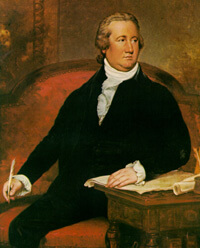
The first Speaker of the House of Representatives was a minister, Frederick A.C. Muhlenberg. His painting hangs outside the House Chamber in the U.S. Capitol.
But even if you was [sic] on the opposite side of the question, you must allow that in this last step I have acted for the best. You know that from the beginning of these troubles I have been compelled to have a hand in public affairs. I have been chairman to the committee of delegates from this county from the first. Do you think, if America should be conquered, I should be safe? Far from it. And would you not sooner fight like a man than die like a dog? I am called by my country to its defence. The cause is just and noble. Were I a bishop, even a Lutheran one, I should obey without hesitation, and so far am I from thinking that I am wrong, I am convinced it is my duty so to do, a duty I owe to my God and to my country.[iii]
The next year, in 1777, British troops marched into New York City and destroyed or burnt 10 of the 19 churches in the city.[iv] One of those they destroyed was that of Frederick Muhlenberg, after which he began to rethink his position on involvement in political affairs, realizing as did his brother Peter that if the church and her leaders do not take action in public affairs, there will be no liberty to worship or preach the Gospel. Frederick went on to serve in government, being elected a member from Pennsylvania of the first Congress under the U.S. Constitution. When the first Congress gathered in New York City in 1789, he was elected as the first Speaker of the House of Representatives. As such, he was one of only two people who signed the Bill of Rights. Thus, the first Speaker of the House of Representatives, Frederick Augustus Muhlenberg, was a minister who had been inspired by his minister brother to get involved in politics for the good of the nation and the good of Christ’s Kingdom. His painting hangs in the Capitol Building today and reminds us of the important role ministers played in our history.
[To read more stories of how Christians advanced civilization through their vocation, see Transforming Nations through Biblical Work.]
[i] Quoted in Teaching and Learning America’s Christian History, Rosalie Slater, p. 248.
[ii] Paul Wallace, The Muhlenbergs of Pennsylvania, Philadelphia: University of Pennsylvania Press, 1950, p. 121.
[iii] Quoted in J.T. Headley, The Chaplains and Clergy of the Revolution, p. 37. See also, Wallace, pp. 120-121.
[iv] Daniel Dorchester, Christianity in the United States from the First Settlement Down to the Present Time, New York: Phillips & Hunt, 1888, p. 266.

